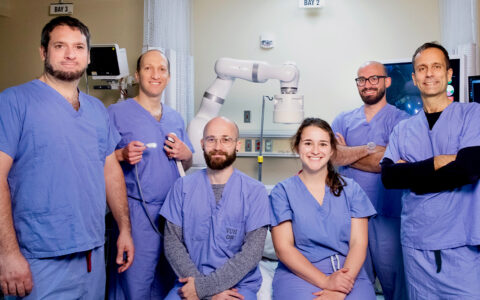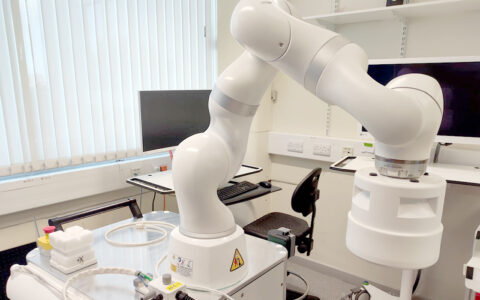Patients with frailty are known to have higher risk for postoperative mortality and complications. However, past research on frailty has largely focused on small groups undergoing high-risk procedures.
A new study suggests even a minor surgery such as laparoscopic cholecystectomy (minimally invasive gallbladder removal) can prove to be a high-risk or fatal procedure for frail patients. In a landmark research project published in JAMA Surgery, investigators from leading U.S. academic medical centers and Veterans Health Administration (VHA) hospitals evaluated the records of 432,828 patients and included a range of procedures grouped according to operative stress.
“Frail patients have alarmingly high rates of postoperative death, no matter how minor the surgical procedure.”
“What we learned in this study is that frail patients have alarmingly high rates of postoperative death, no matter how minor the surgical procedure,” said lead author Myrick “Ricky” Shinall Jr., M.D., an assistant professor and general surgeon at Vanderbilt University Medical Center. “Our data indicate that there are no ‘low risk’ procedures among frail patients.”
Measuring Frailty’s Impact
Frailty is typically measured before surgery by a clinical tool known as the Risk Analysis Index (RAI), which assesses factors such as unintentional weight loss, shortness of breath, weakness, and difficulties with daily activities like walking, eating or bathing. Because no tool to consistently measure operative stress existed, an Operative Stress Score (OSS) was created by the study investigators.
The retrospective cohort included patients in the Veterans Administration Surgical Quality Improvement Program (VASQIP) database who underwent a non-cardiac surgical procedure at VHA hospitals and had information available on vital status at one year postoperatively. Using the OSS, surgical procedures were stratified into five categories of physiologic stress. Postoperative mortality was assessed at 30, 90, and 180 days.
Increased Mortality for Frail Patients
Among the patients included, 8.5% were classified as frail and 2.1% were very frail. The 30-day mortality rates for frail patients undergoing the lowest stress operations and moderate stress operations were 1.55% and 5.13%, both exceeding the 1% mortality rate used to define high-risk surgery. For very frail patients, 30-day mortality rates after the lowest and moderate-stress procedures were even higher at 10.34% and 18.74%. For frail and very frail patients, mortality continued to rise at 90 days and 180 days after surgery, reaching as high as 43% for very frail patients 180 days after moderate-stress operations.
“A laparoscopic cholecystectomy is one of the most common operations I do as a general surgeon, and this has really given me pause to think that for frail to very frail patients — about 10% of our sample — this is a big deal,” said Shinall.
Pre-Surgical Frailty Screenings
Shinall thinks it is worth assessing every patient to determine if they are frail before a procedure is ever scheduled. “The majority of surgeries performed at hospitals are those that cause moderate operative stress, and all procedures at ambulatory surgical centers can be expected to have a low mortality risk. However, clinicians may spend little time considering whether or not their patients can actually endure the stress of surgery,” he said.
“Pre-surgical frailty screenings should be done universally.”
“Our findings led us to recommend that pre-surgical frailty screenings should be done universally, even for procedures known to cause low to moderate physiological stress,” said corresponding author Daniel Hall, M.D., staff surgeon at the Veterans Affairs Pittsburgh Healthcare System and core investigator at the VA Center for Health Equity Research and Promotion. “Frail patients and their families should be counseled about the greater risk of undergoing even minor surgery.”





